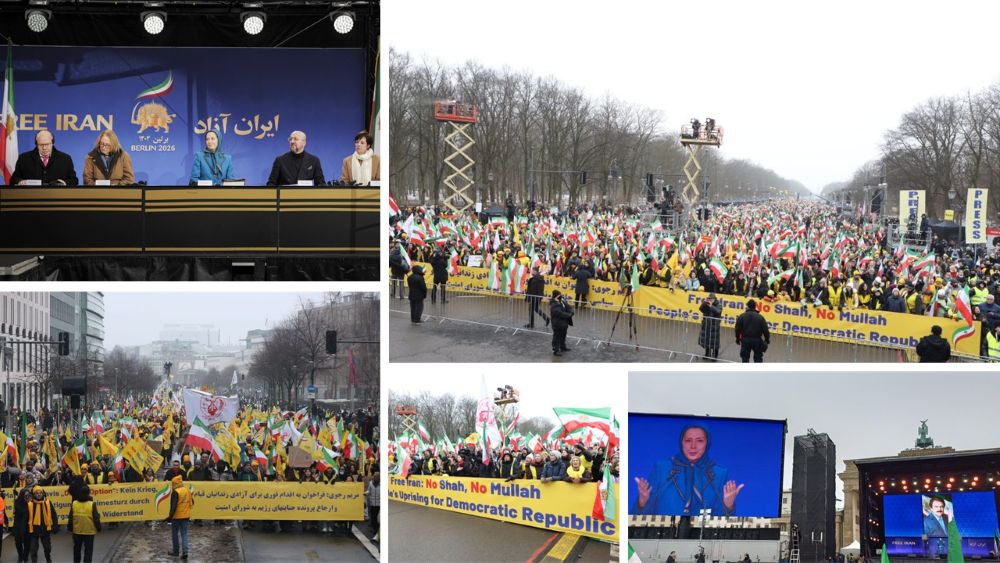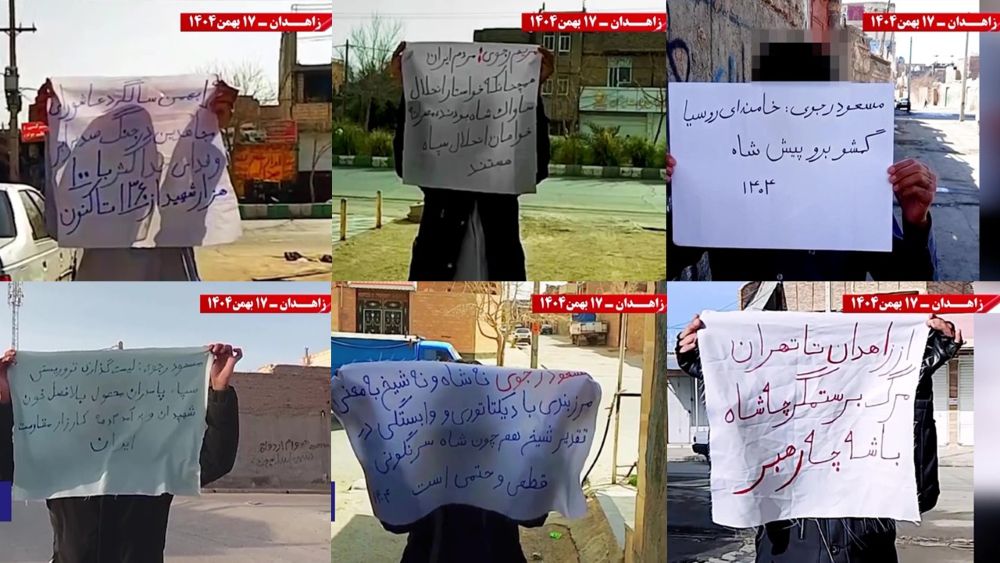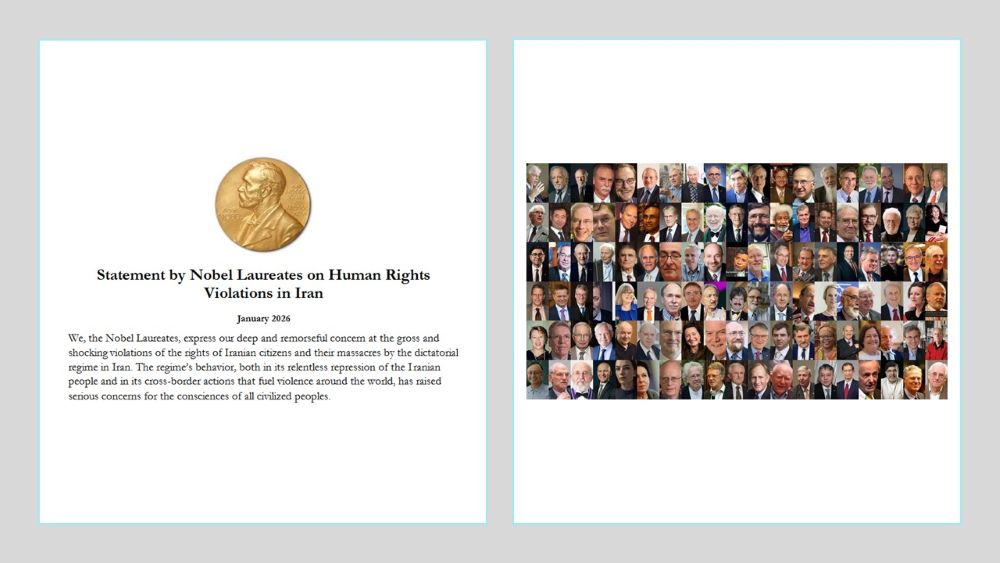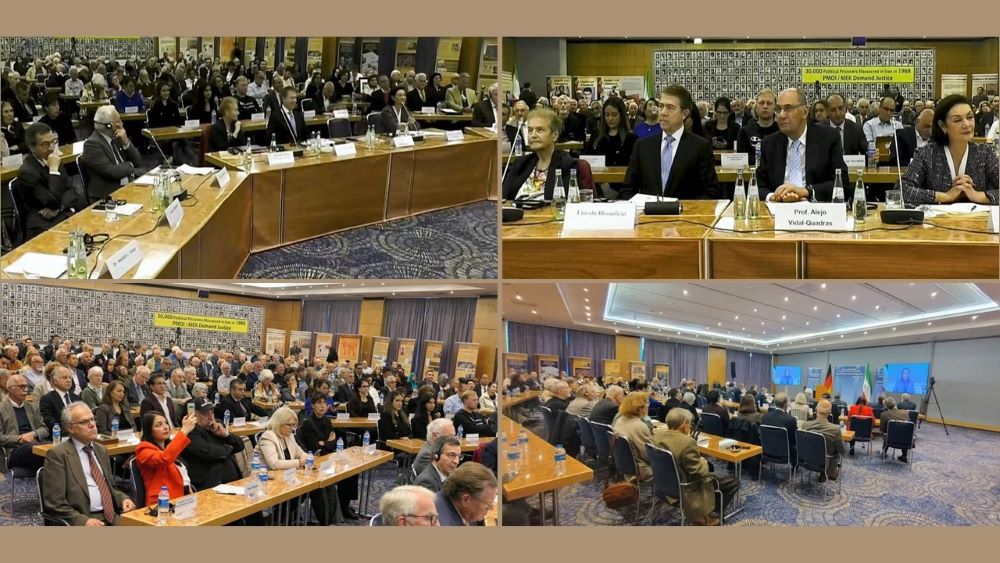
On October 26, 2024, influential political leaders and scholars gathered in Berlin under the theme “Breaking the Deadlock: Perspectives for a New Iran Policy.” Organized by Leo Dautzenberg, former MP and Chair of the German Solidarity Committee for a Free Iran, the conference featured prominent voices from both Europe and the United States. Together, they examined potential shifts in the international approach to Iran’s authoritarian regime, advocating for Western support of democratic forces as a path to sustainable change.
Key figures in attendance included Mrs. Maryam Rajavi, President-elect of the National Council of Resistance of Iran (NCRI); Professor Dr. Herta Däubler-Gmelin, former German Federal Minister of Justice; Dr. Alejo Vidal-Quadras, President of the International Committee In Search of Justice (ISJ); Ambassador Lincoln Bloomfield, former U.S. Assistant Secretary of State; and Dr. Rudolf Adam, former Vice President of Germany’s Federal Intelligence Service. Video endorsements were also shared by former German Defense Minister Dr. Franz Josef Jung and former German Chancellery Chief Peter Altmaier.
Berlin Conference:
Ways out of the deadlock: Perspectives for a new #Iran policy democratic change within reach#Time4FirmIranPolicyhttps://t.co/52NcUopqlt— Maryam Rajavi (@Maryam_Rajavi) October 26, 2024
Maryam Rajavi’s Call for Solidarity
Mrs. Maryam Rajavi emphasized the need for international solidarity with the Iranian people’s fight to “overthrow religious fascism.” She reiterated the NCRI’s stance that Iran’s current regime destabilizes the Middle East—a perspective also held by Germany’s Foreign Minister and members of the Bundestag.
Mrs. Rajavi criticized decades of European Union policies that she argued have allowed the Iranian regime to evade accountability, thereby advancing its nuclear goals and intensifying violent repression both domestically and abroad. She contended that this appeasement approach must shift toward a more assertive policy. The NCRI has long championed a democratic Iran, and Rajavi highlighted its commitment to principles such as the separation of religion and state, gender equality, and human rights. She called on Germany and the EU to support the Iranian people’s fight, which she portrayed as essential for peace and stability in the region.
Reconsidering Missed Opportunities in Western Policy
Leo Dautzenberg spoke of the missed opportunity in 1979, when Western nations failed to ally with a democratic opposition, effectively enabling Ayatollah Khomeini’s rise. Dautzenberg argued that achieving real change in Iran now hinges on supporting a capable opposition, citing the NCRI and the People’s Mojahedin Organization of Iran (PMOI/MEK) as viable, democratic alternatives that can mobilize Iranians against authoritarianism.
European Leaders Demand Accountability for Human Rights
Professor Dr. Herta Däubler-Gmelin called on Europe to adopt a strong stance against Iran’s human rights abuses, especially concerning women. She underscored the need to publicly acknowledge Iran’s escalating executions and repression, asserting that silence on these issues compromises peace. Däubler-Gmelin urged EU leaders to formally address Iran’s human rights violations and adopt a firm response.
Likewise, Dr. Alejo Vidal-Quadras criticized Europe’s current approach to Iran as “counterproductive” and advocated for a complete shift from dialogue and concessions to isolation. He proposed a five-point strategy, including the closure of EU embassies in Tehran, expulsion of Iranian diplomats, and designation of the Revolutionary Guards as a terrorist organization. These steps, he argued, are critical for restricting the regime’s influence and operational capacity.
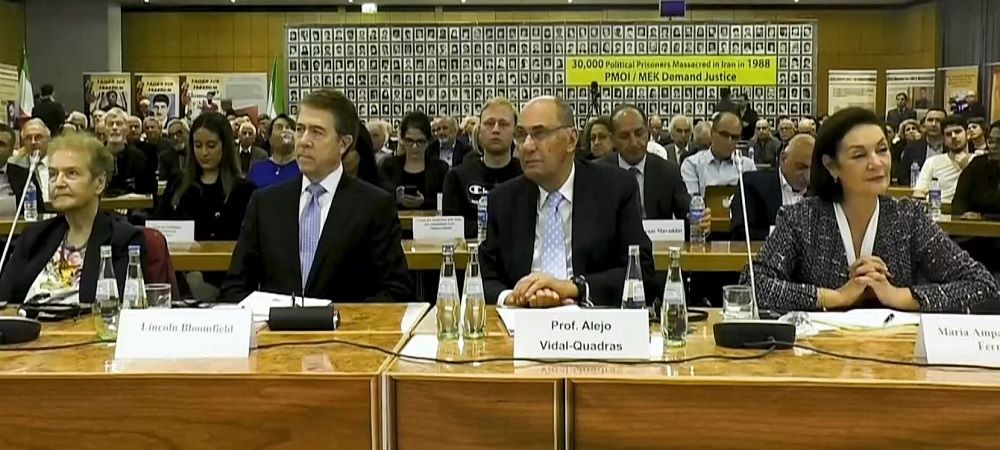
Ambassador Bloomfield: Reassessing Iran Policy is Overdue
Ambassador Lincoln Bloomfield also emphasized the necessity for Western governments to reevaluate their approach to Iran. He highlighted the regime’s recent losses and the mounting evidence of its human rights abuses, including crimes against humanity and even genocide, calling on governments to counter Tehran’s disinformation efforts.
Bloomfield praised the NCRI as a democratic alternative with the potential to replace the theocratic regime, asserting, “A change is coming.” He expressed optimism that the Iranian people are ready to rebuild their country with international support.
Peter Altmaier and Dr. Rudolf Adam: A Policy Shift and Support for Democratic Opposition
Peter Altmaier endorsed the need for a policy change, referencing Germany’s growing disenchantment with Iran’s repressive practices. He praised Maryam Rajavi’s Ten-Point Plan for a democratic Iran, which he described as reflecting the values that Iranians aspire to uphold.
Dr. Rudolf Adam also stressed the importance of limiting Iran’s destabilizing influence by halting its arms exports and supporting the NCRI’s democratic vision. Adam reiterated that backing a democratic alternative is essential to moving past authoritarianism in Iran.
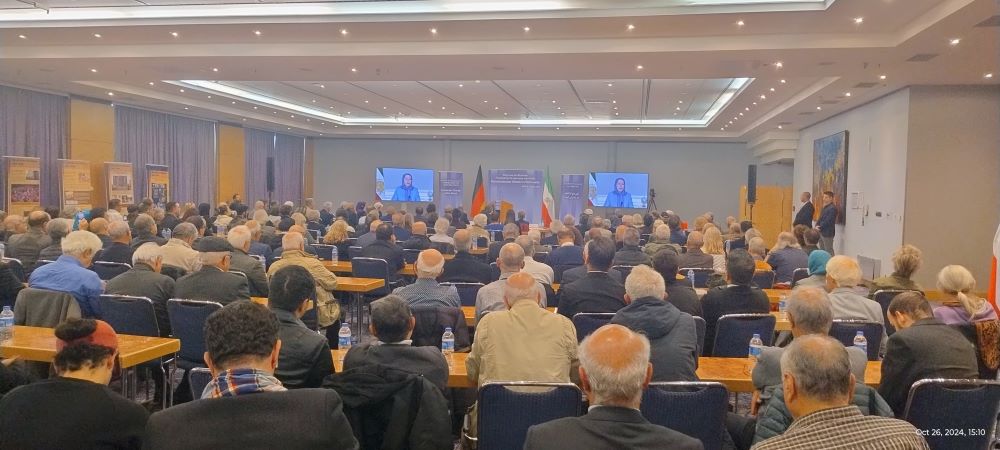
Building an International Coalition for Iran’s Democratic Future
Throughout the conference, speakers underscored the NCRI’s role as a credible and unified opposition force, commending the resilience of the PMOI and its contributions toward a democratic Iran. The conference closed with a strong call for Europe and the West to reconsider their stance on Iran, extending practical support to democratic opposition groups. Panelists argued that such support would serve as a step toward justice for the Iranian people while fostering regional stability and global peace.
With Tehran facing escalating domestic dissatisfaction and increasing international pressure, the NCRI and its supporters in Berlin emphasized that this is a crucial moment for the West to align with the Iranian people’s aspirations and advocate for a democratic Iran.

